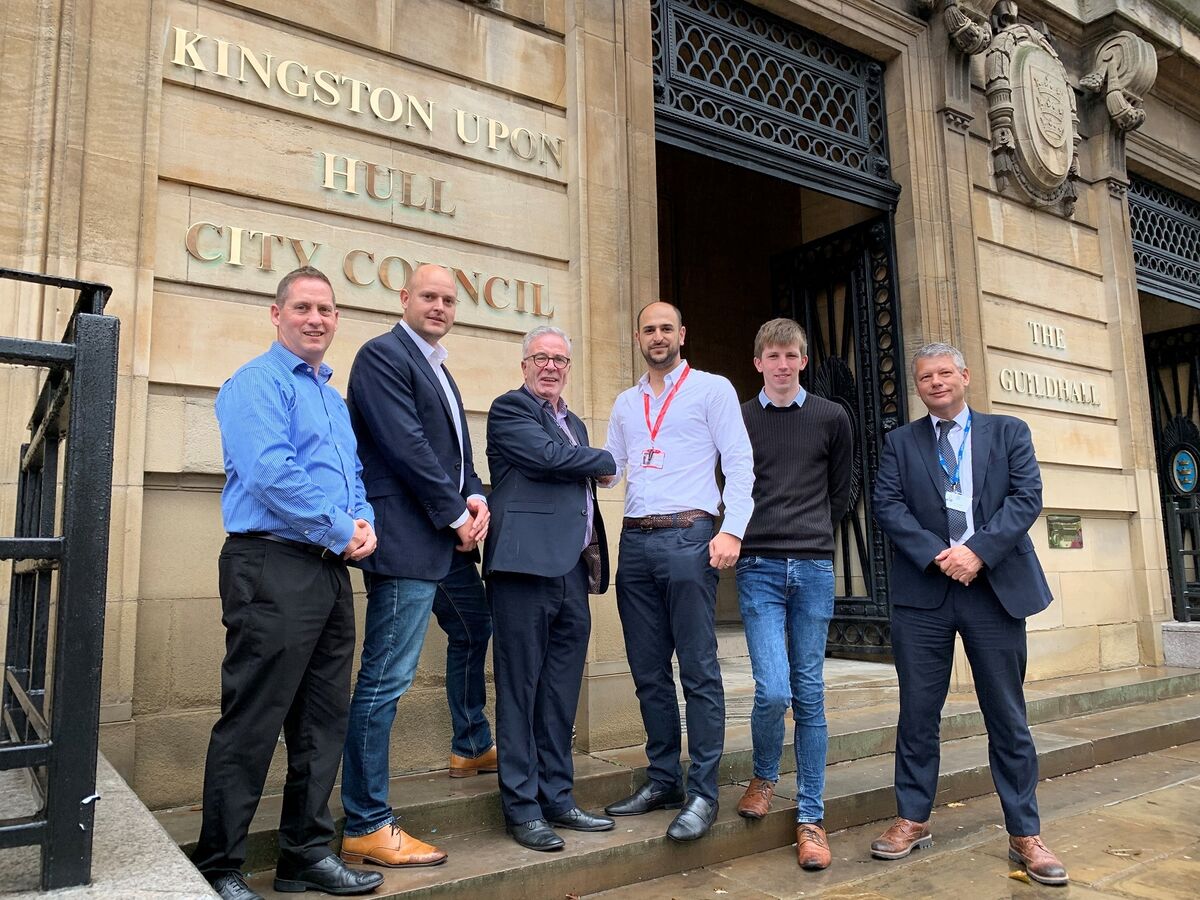From jamie.goodwin@hullcc.gov.uk | Monday 14 October 2019
Connexin and Cisco delivering UK’s first purpose-built Smart City Operating System for Hull City Council

A groundbreaking partnership between Hull City Council and smart city operator Connexin is set to put Hull among the world leaders in smart city technology.
The ambitious plans would link services including waste management, traffic and parking to deliver improved public services for residents.
Using Connexin’s Smart City platform, the local authority will be able to integrate information from a range of council services and systems into a single intelligent dashboard.
Information from data-producing sensors linked to smart lighting, parking, traffic, waste management and Wi-Fi deployments are to be integrated into the “single pane of glass” software platform.
The information will also made available to the public to encourage new ideas to benefit the economy in Hull.
It is one of the first times a city has brought together service-driven technologies in such a coordinated manner.
Councillor Daren Hale, Deputy Leader of Hull City Council, said: “Developing Hull as a smart city will give us the opportunity to work with public and private sector partners to deliver real benefits to communities, businesses and visitors to Hull.
“The project will involve innovative technological solutions to enhanced data-sharing and decision-making, which will help us to deliver more effective services, including everything from traffic management to health and social care.“The system pulls together information that currently sits within separate council computer systems to enable citywide management of public assets in real time using state-of-the-art technology.
“Residents will receive better information to make choices about transport, traffic and parking. But this will be just the beginning of what is possible.
“As the project develops, it will create a demand for new digitally skilled workforce in the city, so we will need to invest in skills and training for younger generations so they are prepared for the new types of jobs that will be created in the digital sector.”
The project comes as part of Connexin’s wider commitment to Hull, making it a leading smart city to foster economic development and enhance many aspects of liveability, workability and sustainability.
Furqan Alamgir, founder and CEO of Connexin, said: “We are thrilled to be partnering up with our home city and are committed to making Hull a world-leading smart city to foster economic development and enhance many aspects of liveability, workability and sustainability.
“Our platform will enable Hull to become a programmable city and move from outdated siloed service-driven technologies to a central platform to improve service delivery, reduce costs and to make the most of new technologies such as Internet of Things (IoT), artificial intelligence and machine learning algorithms.”
Connexin’s Smart City operating system is built around the Cisco Kinetic for Cities (CKC) platform, which takes data from a range of sensors into a set of services such as waste, lighting and parking.
CKC has already been deployed in projects worldwide and brings more than 70 Cisco certified integrations which the firm will actively maintain and update.
Scot Gardner, Chief Executive of Cisco UK and Ireland, said: “Hull City Council is investing in the future of the city to help it become one of the smartest in the world and we are delighted to be a part of that with Connexin.
“When you start to think of a city as programmable, there is opportunity to not only improve individual services with technology, but use combined data insight from those services to create a holistic, actionable view for local authorities.”

